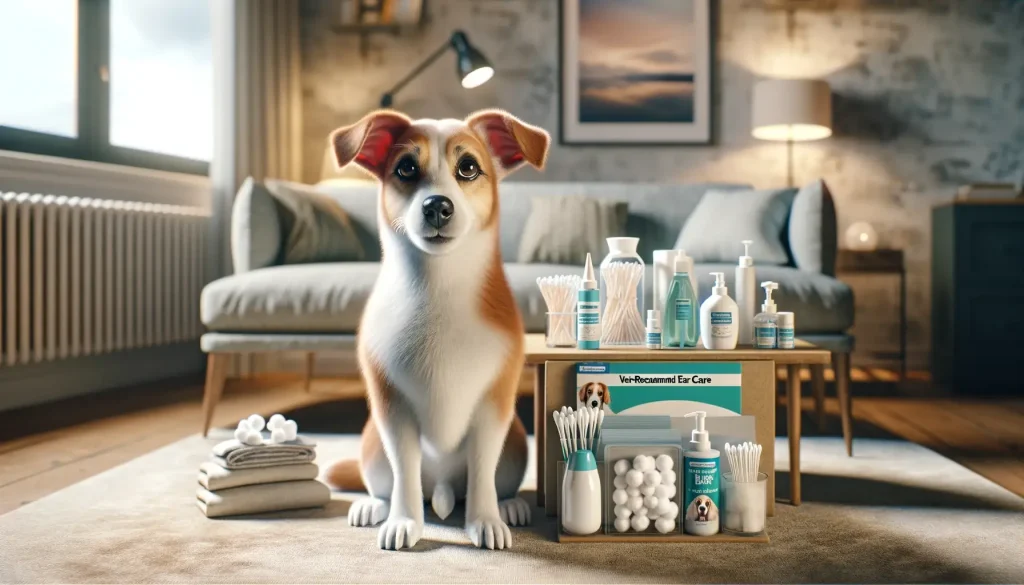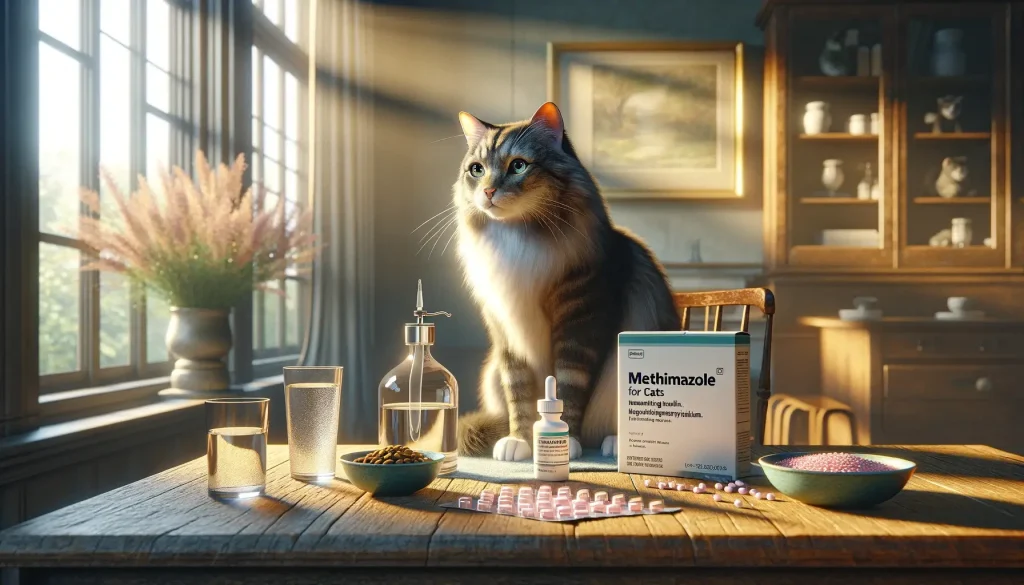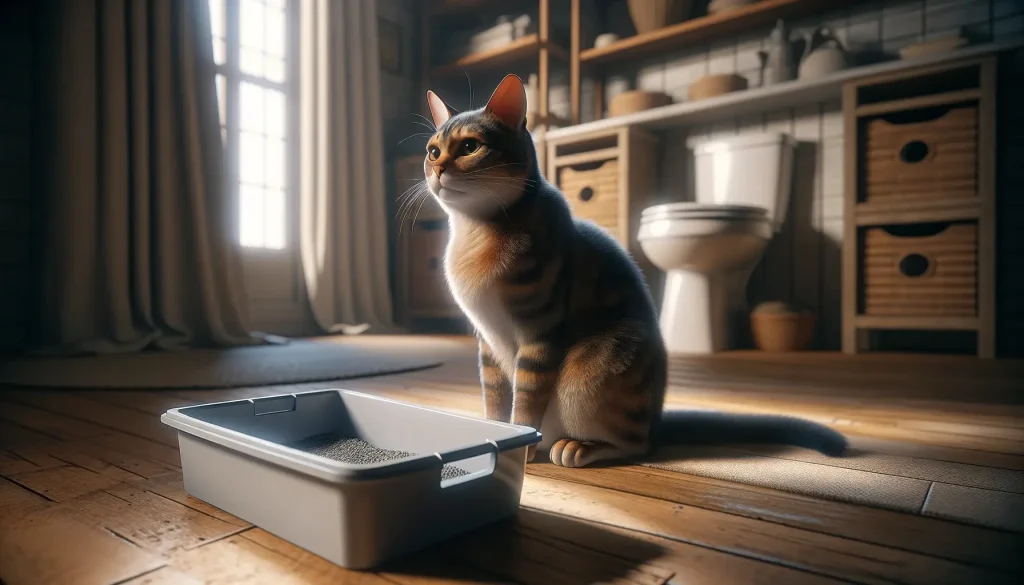
Why Do Male Cats Pee Everywhere?
Many cat owners have experienced their male cat suddenly peeing everywhere, turning the cozy corners of their home into a stressful puzzle of unwanted surprises. This behavior often leads to a whirlwind of confusion, frustration, and concern. Is it a sign of rebellion, a medical issue, or something else? Understanding the underlying cause can be crucial in addressing this unsettling behavior. At the heart of this mystery is a condition known as stress cystitis, particularly prevalent in male cats. This health issue is not only distressing for the cat but can signal a deeper problem linked to stress or anxiety.
Stress cystitis in cats is a complex condition that mirrors the symptoms of a urinary tract infection (UTI) yet notably lacks bacterial presence in urine tests. It typically arises in young to middle-aged cats and showcases a range of symptoms from straining to urinate, crying out in pain during urination, frequent yet minimal urination, urinating outside the litter box, to the presence of blood in the urine and excessive genital licking. Remarkably, the root cause of this condition is believed to be stress or anxiety, leading to inflammation of the bladder. This fact highlights the sensitivity of cats to their environment and the emotions of their owners. For male cats, the stakes are even higher due to their increased risk of a potentially life-threatening urethral blockage.
Prevention and treatment of stress cystitis in cats focus on minimizing stress and anxiety. Strategies include using synthetic pheromones, providing sufficient resources for multiple cats, and offering mental and physical stimulation. Medications may be needed to reduce anxiety in some cases. Immediate veterinary care is crucial for male cats with severe symptoms like urinary blockage. Management may involve pain relief, dietary changes, and promoting hydration through wet food and increased water intake. Regular vet visits are essential for managing this condition effectively.
So, why do male cats pee everywhere? Is it solely a behavioral issue, or is there more to unpack in understanding this perplexing behavior? Let’s delve deeper into the world of feline health and wellness to answer this question.
Stress Cystitis in Male Cats
Stress cystitis in male cats is a reflection of their sensitivity to environmental changes and their owner’s emotions. This condition mimics a urinary tract infection but without the bacterial culprit. Symptoms are clear: straining to urinate, vocalizing pain, frequent, scant urination, choosing corners over the litter box, finding blood in the urine, and genital licking. These signs are troubling for any pet owner and call for understanding and action.
The stressor behind this inflammation of the bladder can be as simple as a change in daily routines or as complex as sensing the emotional turmoil of their human companions. The risk is more pronounced in male cats due to their susceptibility to urethral blocks, which can be fatal if not treated immediately.
Prevention centers on stress management. Here are straightforward strategies:
- Implement stress-reducing solutions at home, such as Feliway, to mimic calming pheromones.
- Ensure ample resources (food, water, litter boxes) for all cats in multi-cat households to avoid competition and stress.
- Seek to engage your cat with interactive activities daily.
- Discuss the possibility of anxiety medication with your vet for persistent cases.
Act fast if your cat shows severe symptoms like inability to pass urine, signs of depression, or abdominal pain. These situations demand urgent veterinary intervention. For many cats, stress cystitis can improve with supportive care, including pain relief and diet and hydration adjustments. Incorporating wet food into their diet and encouraging more water intake can alleviate bladder irritation and reduce the risk of recurrence.

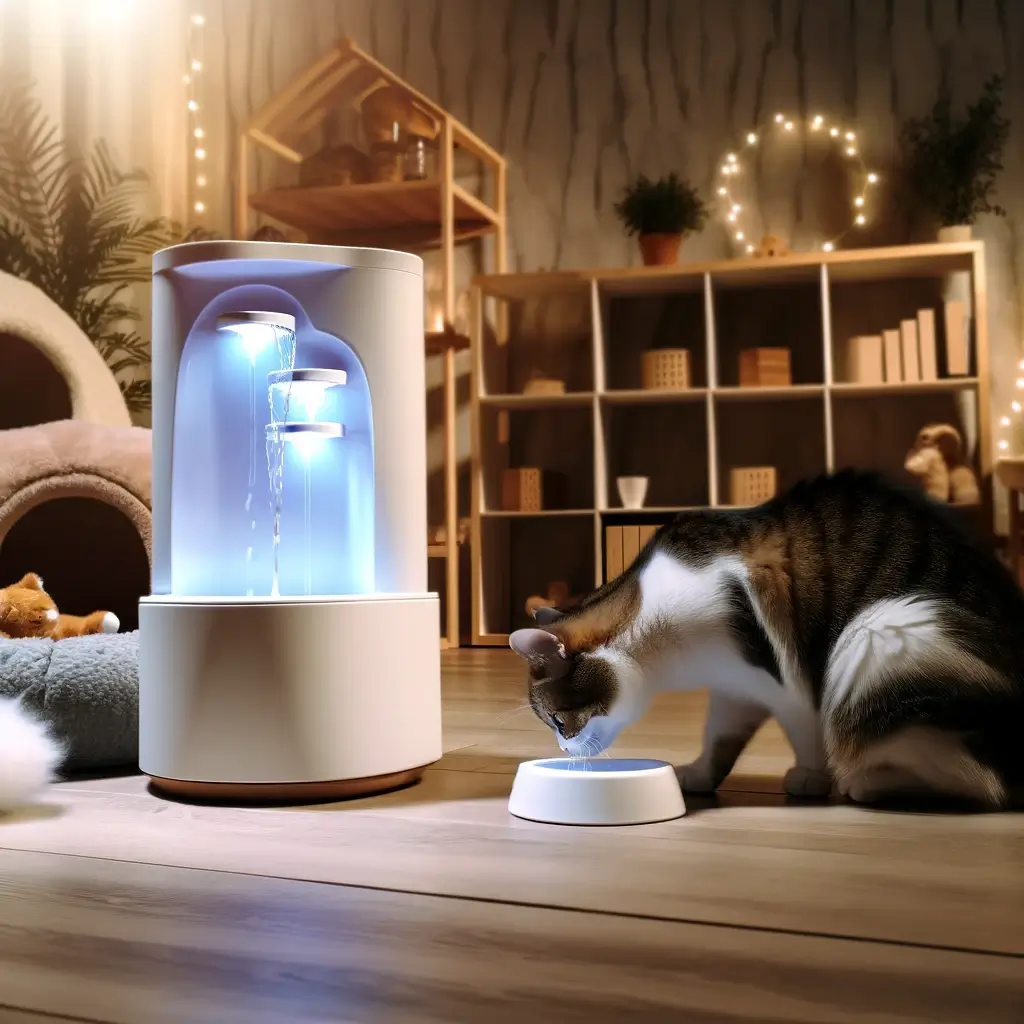
Preventing Urinary Problems in Male Cats
Symptoms to watch for include straining to urinate, making pained noises during urination, frequent urination but in small amounts, choosing spots outside the litter box, finding blood in the urine, and excessive genital grooming. These signs point toward bladder inflammation caused by stress or anxiety. A key concern for male cats is the risk of a life-threatening urethral blockage, making early detection and action crucial.
To fend off stress cystitis, the aim is to dial down stress and anxiety levels in your feline friend. Here’s how:
- Employ synthetic pheromones like Feliway to create a calming environment.
- Make sure there are enough resources (food, water dishes, litter boxes) in homes with more than one cat.
- Engage your cat in both mental and physical activities to keep them stimulated.
- In some cases, anti-anxiety medication may be necessary.
It’s important to move quickly if your cat can’t urinate, seems unusually down, or shows signs of abdominal pain. These are emergencies requiring immediate veterinary care. Usually, stress cystitis can get better on its own, but managing pain and adjusting your cat’s diet and hydration are often part of the treatment plan. Introducing wet food and encouraging more drinking can help soothe the bladder and cut the odds of another episode. Remember, consistent veterinary check-ups are vital for cats showing symptoms of stress cystitis to manage this aggravating condition effectively.
Male Cat Urinary Care
Dealing with a male cat’s urinary issues can be challenging. Knowing when you can manage at home and when to see a vet is essential. Here’s a guide to help.
For at-home care, reducing your cat’s stress is a big step. Stress cystitis is closely linked to changes in routine or your own stress levels affecting your cat. Create a calming environment at home. Here are practical steps:
- Use synthetic pheromones like Feliway to help your cat feel secure.
- Ensure your cat has its resources, especially in households with more than one cat. This includes separate food and water dishes, and more litter boxes.
- Keep your cat mentally and physically engaged. Play sessions and new toys can help.
- Sometimes, cats might need medication for anxiety. This is an option to discuss with your vet.
Increasing water intake is beneficial. Consider mixing wet food into your cat’s diet. This can help prevent dehydration and support urinary health.
Now, let’s talk about visits to the vet. Immediate veterinary care is recommended if your cat:
- Cannot pass urine – this could indicate a blockage, which is an emergency.
- Seems depressed or uninterested in usual activities.
- Shows signs of abdominal pain, which can manifest as crying out when touched.
Male cats are at a higher risk of urethral blockage, which can be life-threatening. Regular veterinary visits are essential for cats showing signs of urinary distress or regular episodes of stress cystitis. A vet can offer advice on long-term management, including pain relief, dietary adjustments, and hydration strategies to protect your cat’s health.
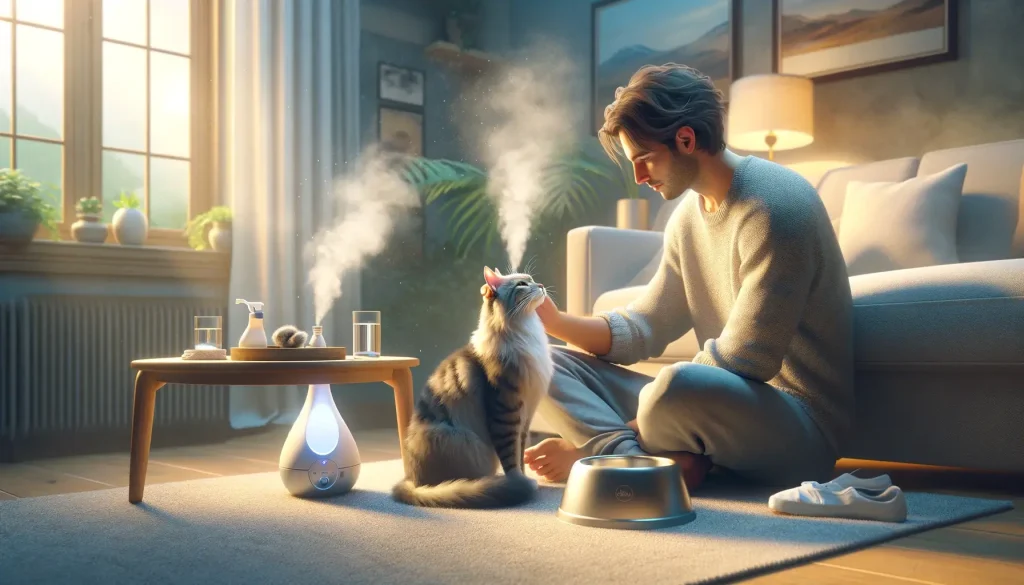
Keeping Your Male Cat Happy and Healthy
Preventing urinary issues in male cats centers on understanding their needs and reducing stress. Focusing on a stress-minimized environment can significantly lower the risk of conditions like stress cystitis. Here’s what you can do:
- Introduce stress-reduction techniques at home using products like Feliway that mimic calming pheromones.
- Ensure there’s enough of everything to go around in multi-cat homes. This means more food bowls, water dishes, and litter boxes to prevent competition-induced stress.
- Keep your cat engaged with daily play sessions. Use interactive toys or puzzles to stimulate their mind and body.
- Consider wet food diets to increase water intake naturally. This helps keep your cat hydrated and supports urinary health.
- Consult with your vet about potential anxiety medication if your cat seems particularly stressed or anxious.
Immediate veterinary attention is critical if your cat shows signs of not being able to urinate, appears lethargic, or is experiencing abdominal pain. However, with the right preventive measures in place, you can create a nurturing environment that supports your male cat’s overall well-being, significantly reducing the chances of urinary problems.
Beginner Guide to Raising Quail at Home
What are the Signs of a Dog Concussion?
What Causes Your Dog’s Ears to Smell Bad?
When your dog’s ears start to emit an unpleasant odor, it might leave you puzzled…
Methimazole Treatment for Cat Hyperthyroidism
Methimazole plays a crucial role in managing feline hyperthyroidism, a condition marked by an overactive…
Got Hummingbirds in your Backyard? Here’s How to Care for Them.
Why Does Your Cat Pee Outside the Litter Box?
Cat’s Litter Box Issues It’s not uncommon for cat owners to face the frustrating dilemma…


